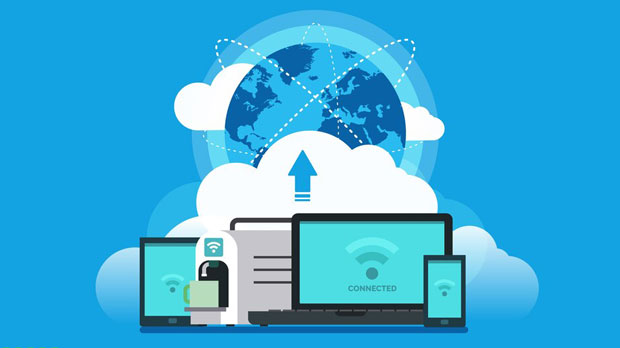Proxy site list's precise filtering technology has revolutionized the online browsing experience by offering users more control, security, and efficiency when accessing content. This technology utilizes advanced algorithms to filter out unreliable or unsafe proxy servers, ensuring that users can access high-speed, secure, and trustworthy proxies. By applying filters that match users' needs—whether it's for anonymity, geo-restriction bypassing, or specific security protocols—proxy site list enhances the overall user experience. This article delves into how these filtering techniques provide tangible benefits in improving web browsing, from boosting security to ensuring faster connections. Understanding Proxy Site List and Its Importance in Online SecurityThe proxy site list refers to a curated collection of proxy servers that help users connect to the internet through a middle server. This allows users to browse websites and services anonymously, bypass geo-restrictions, and enhance security. However, not all proxy servers are created equal. Many proxy services may expose users to potential risks such as data leakage, slower connections, or even malicious attacks. Thus, selecting reliable proxy servers through a precise filtering mechanism is crucial.A proxy site list with accurate filtering offers users the ability to make educated decisions about which proxies to use based on criteria such as location, speed, security protocols, and reliability. When selecting proxies based on these factors, users are less likely to experience slow load times, compromised security, or exposure to harmful content. Precise filtering ensures that only high-quality proxy servers are accessible, greatly enhancing the overall browsing experience.Enhanced Security with Precise Proxy FilteringOne of the major benefits of a precise proxy site list is the enhanced security it provides. Proxy servers can act as a protective barrier between the user and the open internet, preventing malicious actors from directly accessing a user’s data. However, not all proxy servers are secure, and some may even expose users to privacy risks.Precise filtering technology helps identify proxies with advanced encryption protocols, ensuring that all communications are safely encrypted. It also helps detect and block proxies that might be vulnerable to attacks or prone to leaking personal information. By using only trusted and secure proxies, users can browse websites with peace of mind, knowing that their data is being protected from potential threats.Moreover, filtering can block access to proxies that are often used for malicious activities, such as spam, phishing attacks, or identity theft. This adds an additional layer of security to the user's browsing experience, making it more difficult for cybercriminals to target them.Improved Speed and PerformancePrecise proxy filtering also plays a vital role in improving the speed and performance of internet connections. Some proxies may introduce significant latency, leading to slower load times and buffering. In contrast, high-quality proxies, which are identified through rigorous filtering techniques, help users maintain fast browsing speeds.By choosing proxies that are optimized for speed, users can ensure that their connection is stable and reliable. For instance, when users are connecting to a proxy server located close to their physical location, the data transfer speed is faster, reducing the time it takes to load websites or stream content.Additionally, filtering out low-performance proxies that are often overloaded or under-equipped to handle high traffic ensures that users experience consistent and fast connections. This improves the overall browsing experience, especially for users engaging in activities that require high-speed connections, such as online gaming or video streaming.Bypassing Geo-Restrictions with Targeted Proxy SelectionAnother crucial benefit of using a proxy site list with precise filtering technology is the ability to bypass geo-restrictions. Many websites and online services restrict content based on the user’s geographical location. This can be frustrating for users who wish to access content that is otherwise unavailable in their region.With precise filtering, users can select proxy servers located in regions where the content they want to access is available. By connecting to a proxy in the desired location, users can effectively bypass geo-restrictions and access content as if they were in a different part of the world.For example, users looking to access video content from a specific country can choose a proxy server located in that country, granting them access to region-specific content. This capability expands the global access to digital content, creating a more dynamic and inclusive browsing experience.Optimizing User Privacy and AnonymityThe ability to maintain user privacy and anonymity is one of the core features of using proxies. Precise filtering technology helps ensure that users can select proxies that prioritize anonymity and privacy, effectively masking their real IP addresses and preventing third parties from tracking their online activities.For users concerned about privacy issues—whether it’s for personal or professional reasons—the ability to choose proxies with the best privacy features is invaluable. With filters that prioritize anonymous browsing and IP masking, users can confidently navigate the internet without worrying about surveillance or data collection by websites, advertisers, or hackers.Additionally, precise filtering can help users avoid proxies that may track their data or store browsing history. By choosing high-quality proxies, users can ensure that their online activities remain private, further enhancing the user experience.Cost-Effectiveness and Efficient Use of ResourcesUsing a proxy site list with precise filtering technology can also result in cost savings for both individuals and businesses. Many proxy services charge varying fees based on performance and features. By using a filtered list, users can identify the most cost-effective proxy services that meet their needs, avoiding unnecessary expenses.For businesses, this can be especially beneficial when needing to access multiple proxies for various purposes, such as marketing, data scraping, or customer service. By selecting proxies that offer the best value without compromising on performance or security, companies can optimize their resources and reduce costs.Moreover, users can avoid spending money on low-quality or unreliable proxies that may end up slowing down performance or compromising security. By relying on precise filtering, users ensure that they only invest in proxies that offer a high return on investment.Conclusion: The Value of Precise Filtering for User ExperienceProxy site list's precise filtering technology offers users a host of benefits, including enhanced security, improved speed, and better access to content. By using this technology, users can enjoy a safer, faster, and more efficient online experience. Whether for personal browsing or business-related activities, selecting proxies through a filtered list ensures that users receive optimal performance and value. In a world where online privacy and security are paramount, the ability to select trustworthy and high-performance proxies is essential for an enhanced user experience.
Aug 04, 2025

































































